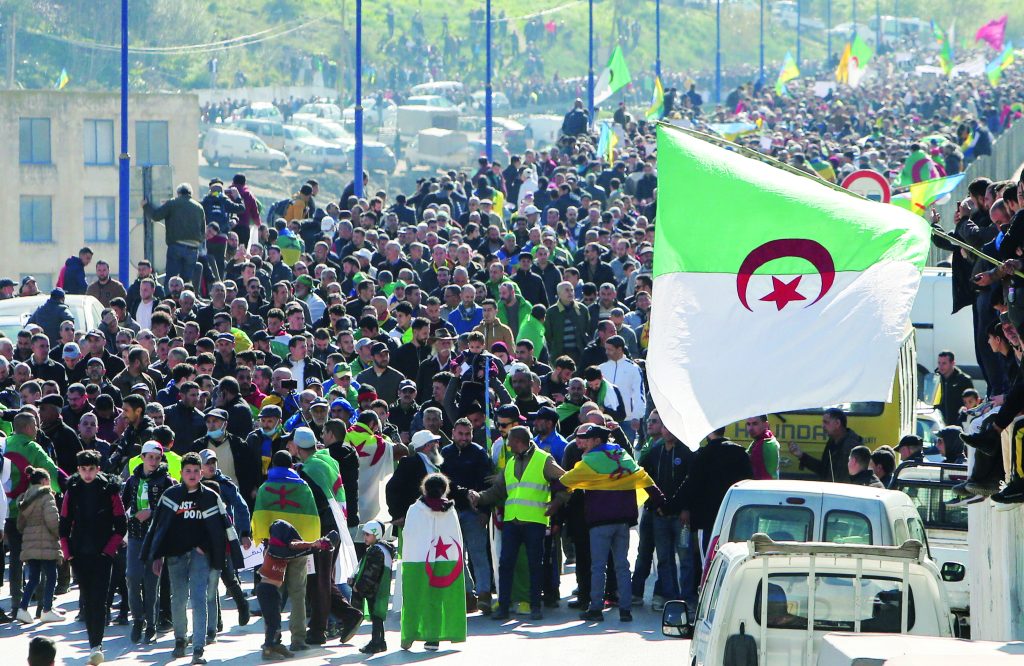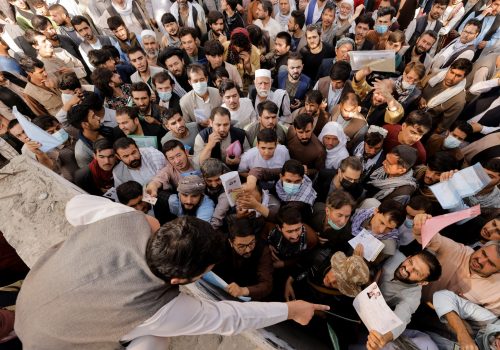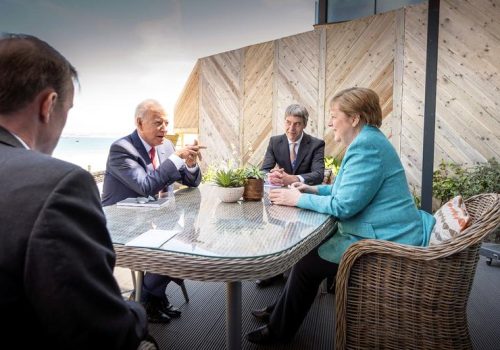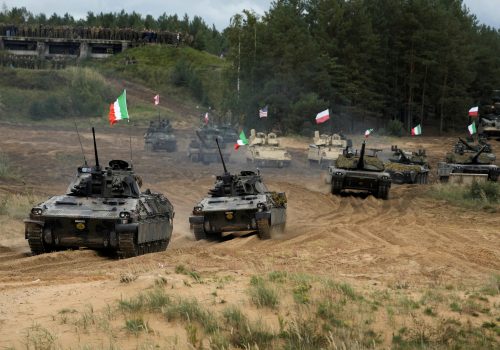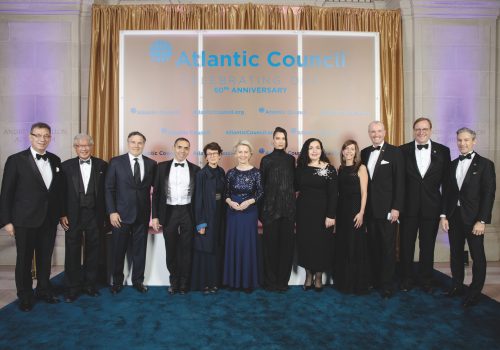Advancing peace and security and unlocking the region’s human and economic potential.
The Rafik Hariri Center and Middle East Initiatives offer pragmatic solutions to the security, economic, and sociopolitical challenges facing the Middle East and North Africa region. Through its diverse initiatives, the center works with allies and partners in Europe and the wider Middle East to advance US interests, promote peace and security, and explore avenues for unlocking the economic and human potential of the region.
“ Your podcasts with entrepreneurs from the region are excellent and inspiring. I appreciate the work that you’re doing.”
US Principal Deputy Assistant Secretary of State for Near Eastern Affairs Joey Hood
In 2021, entrepreneurs in the Middle East and North Africa (MENA) continued to push against economic barriers and government bureaucracies to promote innovation in the region. To highlight some of those success stories, the Rafik Hariri Center’s empowerME Initiative launched a podcast, empowerME Conversations, featuring interviews with regional business and government leaders at the forefront of shaping the future of the Middle East. The initiative also launched IGNITE, an effort to convene US entrepreneurs, experts, and business leaders together with their Saudi counterparts to share knowledge and develop partnership opportunities via hybrid workshops and networking sessions. In collaboration with the late Majid Al Futtaim and the World Government Summit, the empowerME Initiative also held the third annual CEO Dialogue in Dubai to discuss business challenges and opportunities impacting the Middle East.
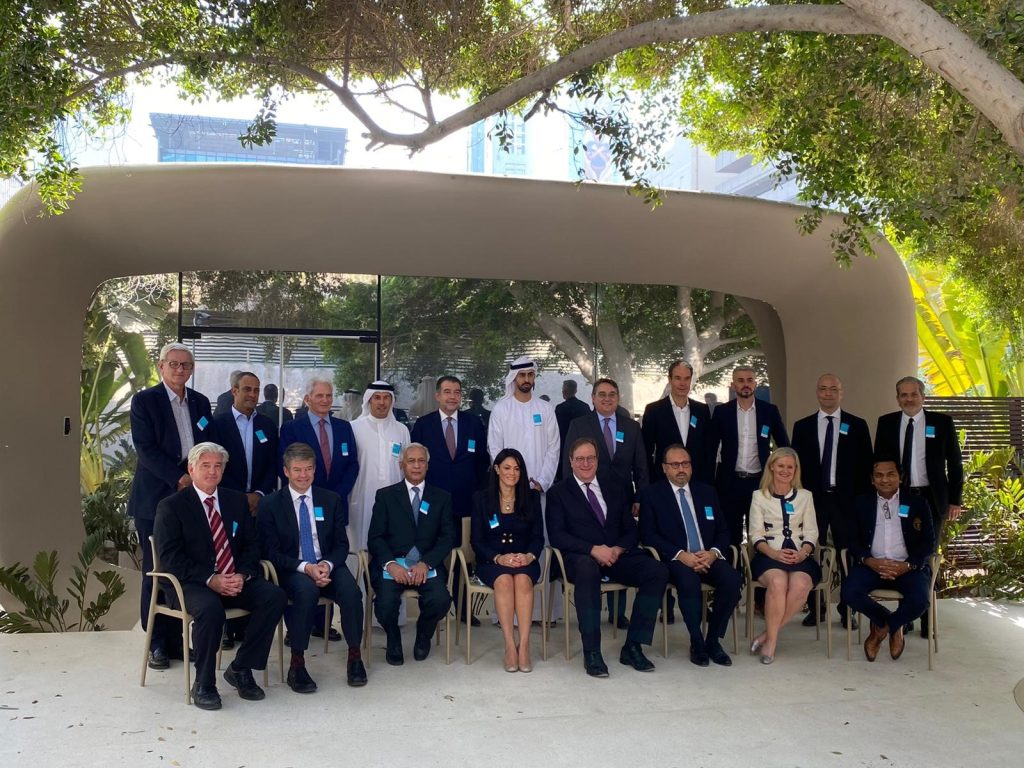
The center took its new Strategic Litigation Initiative to new heights in 2021, with its efforts to engage policymakers on China’s ongoing human rights violations against the Uighur minority in Xinjiang. Senior Fellow Rayhan Asat met with US Secretary of State Antony Blinken and spoke at the first Summit for Democracy on the issue.
The ongoing political and humanitarian crisis in Syria remained a priority for the Rafik Hariri Center and Middle East Initiatives over the past year. The center hosted a number of virtual discussions and published a report on the challenges the United States faces in Syria amid ongoing Russian involvement and security concerns.
In June, the Iranian presidential elections took center stage and the center’s IranSource blog featured a diverse group of experts anticipating and assessing the impact of the vote on Iran’s economic, regional, sociopolitical, and geopolitical priorities. The Future of Iran Initiative also published analysis on the role of Iranian women as change agents.
As the US withdrawal from Afghanistan took place in August, the center’s experts explored its impact. This analysis coincided with an event on the twentieth anniversary of the September 11 attacks featuring Assistant to the President for Homeland Security Elizabeth Sherwood-Randall.
In October, just over a year after the signing of the Abraham Accords between Israel and several of its Arab neighbors, the Atlantic Council and the Jeffrey M. Talpins Foundation successfully launched the N7 Conference, which brought together ministers and senior government officials from Israel, the United Arab Emirates, Bahrain, Morocco, Sudan, Egypt, and Jordan for the first-ever multilateral meeting of the seven countries.
Tensions between Morocco and Algeria reached unprecedented levels in 2021, while political turmoil returned to Tunisia after President Kais Saied’s power grab in July resulted in countrywide protests. Nearby, Libya postponed its highly anticipated elections in December and has yet to agree on a constitutional framework or a new election date. In partnership with the Italian Institute for International Political Studies (ISPI), the Council’s North Africa team published the annual collaborative report, North Africa 2030: What the Future Holds for the Region, featuring analysis on socioeconomic and political trends in Libya, Algeria, Egypt, Tunisia, and Morocco.
In November, the center’s Scowcroft Middle East Security Initiative hosted the first annual conference on “The Future of Middle East Security in a Changing World” in partnership with UAE-based think tank TRENDS Research and Advisory. The initiative also launched the Gulf Security Task Force to assess the future threat landscape in the Middle East and evaluate US partners’ capabilities to respond to those threats.
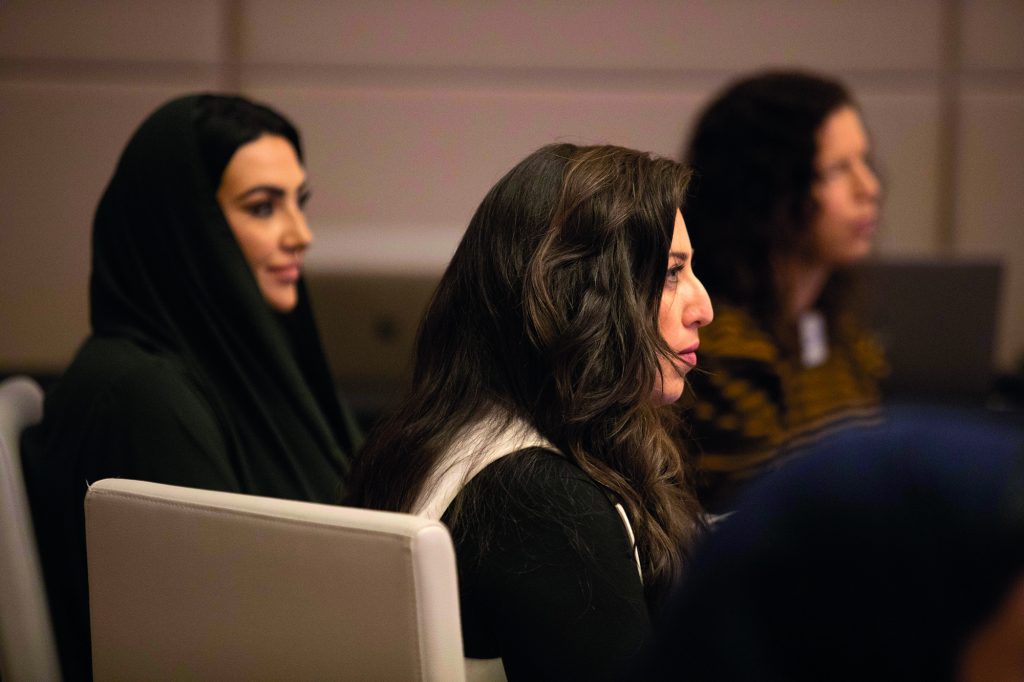
Vision for 2022
In 2022, the Rafik Hariri Center and Middle East Initiatives will maintain their important engagements on and in the region but with an added, special focus on China’s role in the Middle East via a new podcast. Additionally, the empowerME Initiative will release a dynamic visual representation of the entrepreneurship space in five MENA countries. The center’s work will build on the success of the N7 Conference to advance and actualize normalization between Israel and its Arab neighbors. The Scowcroft Middle East Security Initiative will also publish the findings of the Gulf Security Task Force, which will update current thinking on threats and US interests in the Gulf.
Next
Read the full report
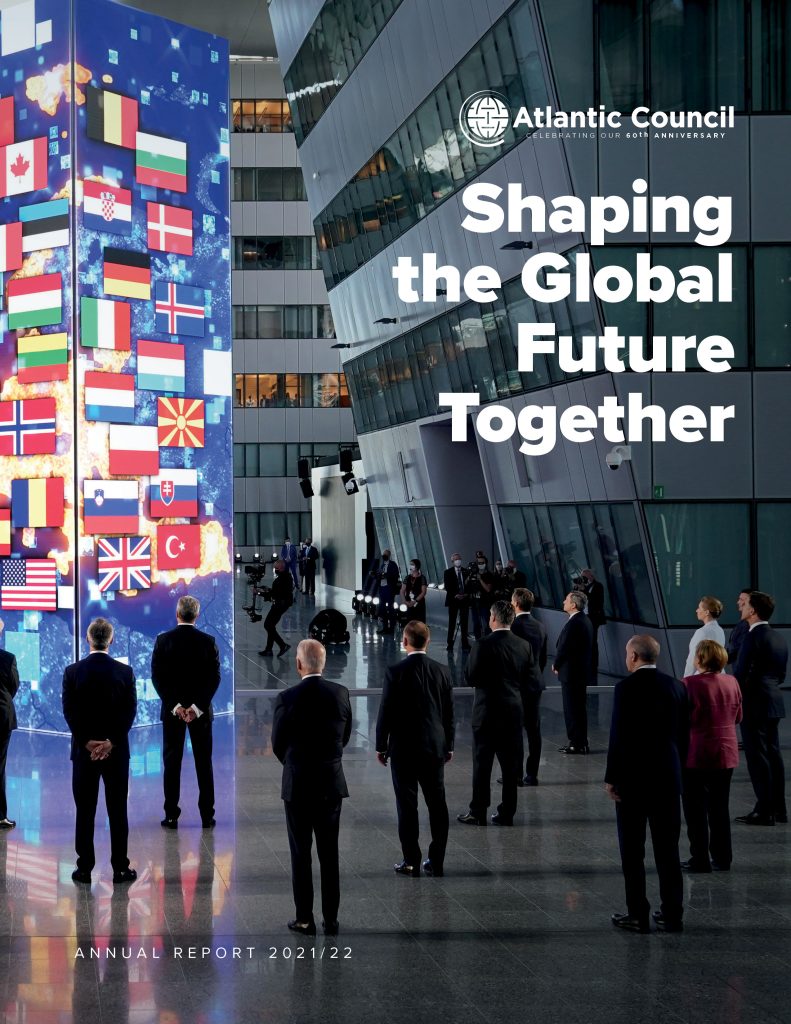
Annual Report 2021/2022
The Atlantic Council has never been more robust operationally, substantively, or financially in its sixty-year history. This comes at a time when our work has never been more crucial in the face of complex, daunting, and worldwide challenges.
Image: Demonstrators carry national flags as they gather in the town of Kherrata, marking two years since the start of a mass protest movement there demanding political change, Algeria February 16, 2021. REUTERS
